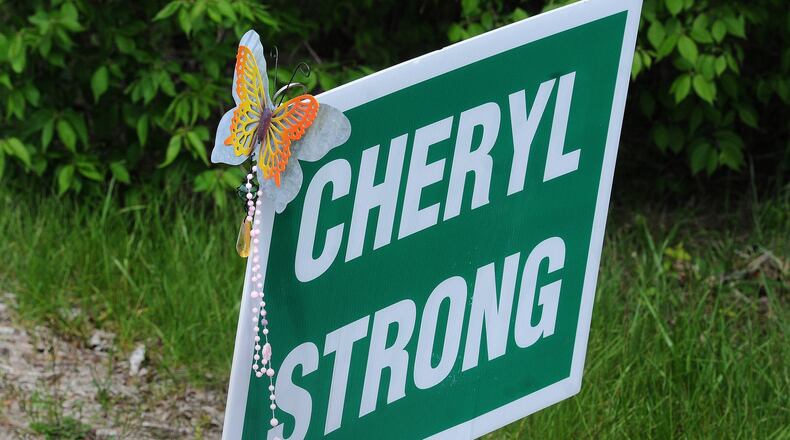And while not ideal, Darren Dake, a certified death investigator and international death scene investigation instructor, said a crime scene like the one discovered April 25 off of Waynesville Jamestown Road can still possess valuable evidence for law enforcement.
Those who searched for Cheryl Coker now drawn to site where remains found
“There is a lot of evidence that can be found in a case like that,” Dake said. “If that scene is worked correctly, it’s amazing how much evidence we can find.”
Dake spoke broadly about crime scenes like Coker’s to the Dayton Daily News. He said there could be barriers that investigators will have to overcome like animal interference, but bones can still help investigators understand what happened before death.
“The bones can be analyzed to determine, hypothetically, maybe if someone was stabbed, maybe there is going to be marks on the bone showing some sort of sharp instrument,” he said. “If they were shot, again, if a bullet went through or hit a bone, they can tell. However, if they were killed in such a way that the bones were not affected, then there probably won’t be any evidence on the bones. Maybe they were strangled or poisoned and no bones were affected.”
He said even still, a crime scene can provide a lot of information.
“I’ve worked cases where someone left their driver licenses accidentally at the scene,” Dake said. “You don’t know what type of evidence the police may have found in a case like this. It does leave a lot open to possibilities.”
Sharrett said during a press conference early this week that the investigation is still ongoing and mentioned that there was evidence that helped investigators determine the bones were the remains of Coker, which was confirmed using dental and surgical records.
Riverside Police said they are investigating the case as a homicide, and Chief Frank Robinson said his department is committed to finding the person responsible.
Memorials placed where bones of Cheryl Coker found
“We have never given up on this case,” he said during a press conference earlier this week. “We have never wavered from continuing to follow all the evidence that we have collected or evidence that has been collected for us.”
Previously, Riverside police named Cheryl Coker’s husband, William “Bill” Coker, a suspect. Bill Coker has denied involvement and has not been charged. An attempt by the Dayton Daily News to reach Bill Coker wasn’t successful Friday.
About the Author
